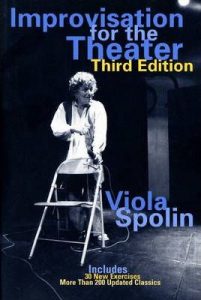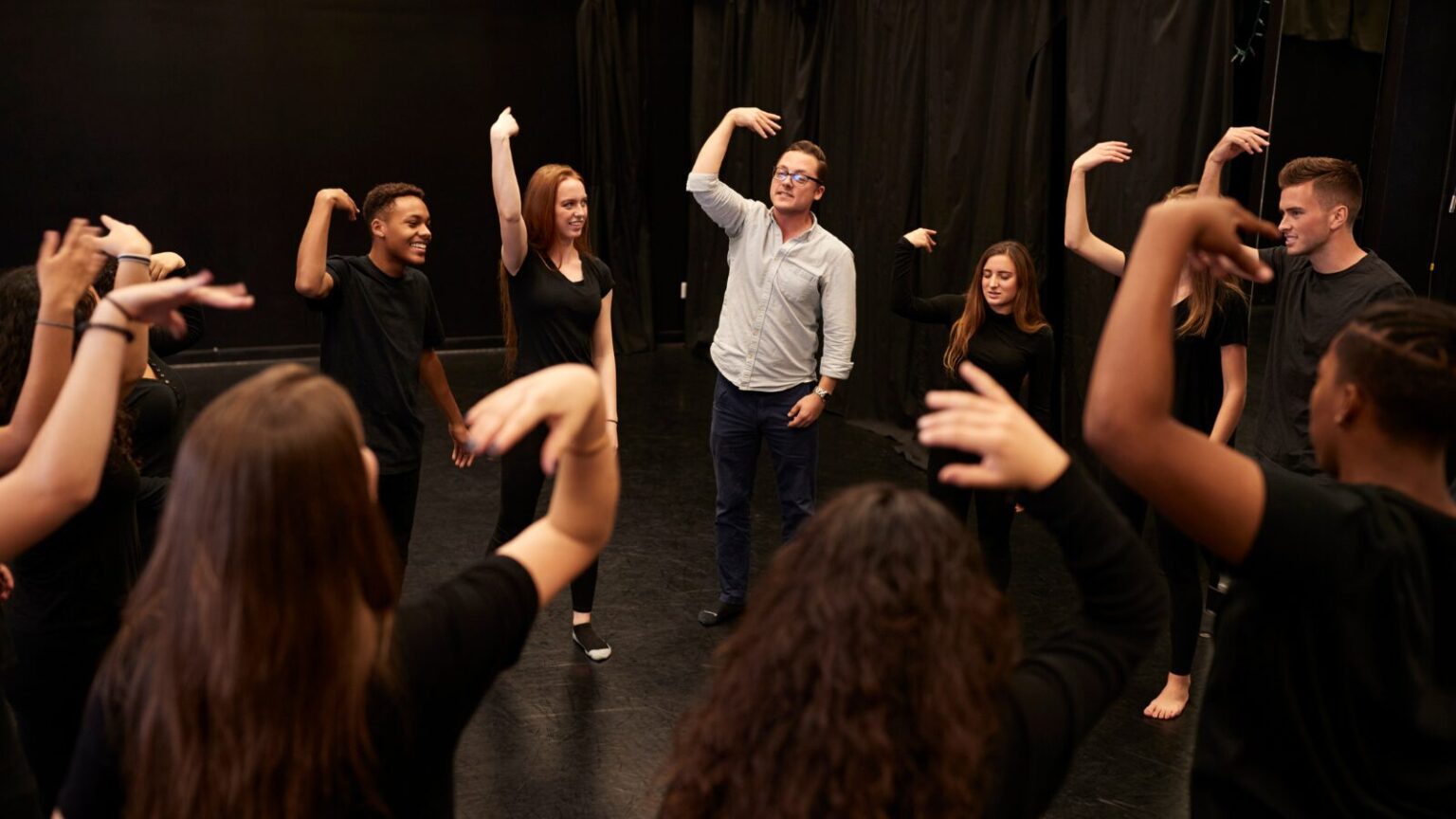7 Ready-to-Go Spolin Improv Activities for Your Classroom
 Improvisation for the Theatre by Viola Spolin, came into my possession buried in a pile of laundry. It’s dogeared, battered, tattered, and torn – though not unloved. It’s scribbled on and worked over.
Improvisation for the Theatre by Viola Spolin, came into my possession buried in a pile of laundry. It’s dogeared, battered, tattered, and torn – though not unloved. It’s scribbled on and worked over.
For those of you who are not familiar with Spolin,1906-1994, you can click here to find out more. Spolin was an improvisation teacher, in America, and considered to be the mother of improvisational theatre. If you haven’t tried improv in your classroom I recommend you do and if you haven’t yet found her book I recommend you do that too.
Why?
Well, you know that frozen feeling you get when things go splat? It could be an observation, a class or an interview. You suddenly find yourself with time on your hands; a void which has to be filled with something meaningful. Well, this is where improv lives. Living in the moment, dealing with what is at hand, thinking on your feet, coming through and feeling at ease in uncertainty.
Teaching Grammar Through Theater
At over 400 pages it’s not a slim volume. But, in the words of Rob Reiner “her book is the bible.” This book.
As EFL teachers we are all actors and entertainers to a greater or lesser extent. Sometimes we are obliged to invent personas and characters other than our own to get our point across, often on a bad day when things are not going quite as we planned. So, in these situations it’s better if we are improvisators ourselves. It can save the day.
Now, I’m going to share just a few of the 200 games from this book. I hope these will give you hours of fun in your classroom.
When I go to California
Teams of 10 – 12 players in a circle.
First player says “when I go to California, I’m going to take a kite” for example. The next player then adds an object, then the next. When a player cannot remember the lengthening list he/she must leave the game.
For the second round, the objects are acted. Instead of saying “take my shoes” the students act putting on shoes.
Resist the urge to direct, rather let the student act it for themselves.
The third round is flexible, you can alternate between speaking and acting, or whatever you or your students can create.
This game is great for vocab revision, or indeed adverbs of manner – “put shoes on angrily” etc
Using Drama to Teach English – Some Tips and Resources
Transformation of words.
Students write a word. It could be a simple four-letter word like “pine” on each turn they can change only one letter to form another word.
This could be done in a circle with a piece of paper. It could be done with two teams on a whiteboard. Improvise!
Idioms
A player leaves the room. The remaining players decide on an idiom. Each of the players uses one word from the idiom in a sentence. The player who was outside listens to the sentences of the players, and from the repetition of the words tries to figure out what the idiom is.
Bullshit
Two players start, they begin discussing a topic they’ve both agreed upon. They try not to make the topic too obvious trying to be a vague as possible, while staying on topic.
Then if an observer, thinks he/she knows what they’re talking about they join in the conversation. If the original players think that the person is incorrect in his/her idea of what the topic is they can shout “bullshit” or “bluffer” . Then that person whispers their answer. If they’re correct they stay. If not, they must leave.
Others can join when they feel they know. Or bluff.
Writing Drama for English Language Learners
What do I do for a living?
A number of students wait at a bus stop. They do what people do at a bus stop. Check the timetable, look at their smartphones, etc. Try to keep the students busy and prevent “hanging out” or idling. Try to get the students to infuse banal actions with the mannerisms of a particular job and have the observers guess what the job is.
Mirroring
Have students face each other in a conversation. Have them mirror the actions and expression of their partner. Keep the conversation going.
Gibberish
A single student, speaking gibberish, has to persuade or sell to other members of the class. The other members of the class have to figure out what the student is trying to do. Try to minimise gestures that would give the product or service away. Instead try to focus on tone and expression.
This could be varied to be a teacher of a subject or skill, working one-on-one or in a group.
Improv is a life skill. Teaching our students to think on their feet and speak without too much planning, but still in a careful and controlled way, is so useful, and not easy. Teaching them to do it in a language which is not their own is demanding but so rewarding when they become master of it. It helps in our EFL class on so many levels, but how much is it going to help our students in their future lives and particularly in their future careers to know that whenever they are in a tight spot and maybe lost for words, they can think about the improv skills learnt in their EFL classroom?







